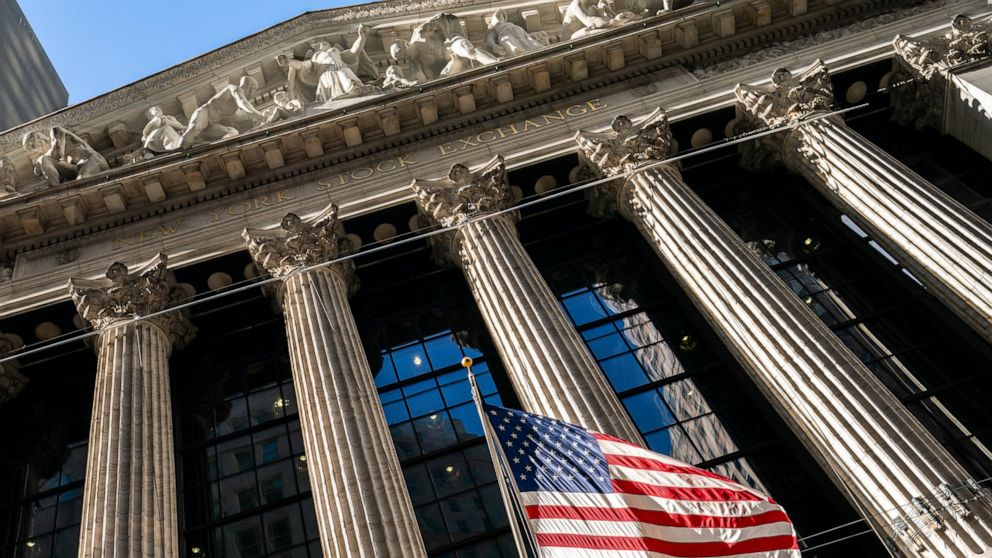Asia shares gain, trading closed in Korea, China for holiday
TOKYO — Asian shares gained Tuesday, mirroring broad overnight gains on Wall Street, while trading in China and most other regional markets was closed for Lunar New Year holidays.
Japan’s benchmark Nikkei 225 edged up 0.5% in morning trading to 27,139.89. Australia’s S&P/ASX 200 gained 0.4% to 6,996.80.
Wall Street closed a tumultuous January wracked by worries that interest-rate hikes will make everything in markets more challenging. Shares closed higher but still logged their worst monthly loss since the early days of the pandemic.
Investors expect the Federal Reserve to begin raising interest rates in March to fight inflation. Ultra-low rates and other stimulus helped markets recover from the initial shock of the coronavirus pandemic, and then supported stunning gains.
The S&P 500 came back from an early dip to close 1.9% higher at 4,515.55. Even so, the benchmark index fell 5.3% in January, its worst month since falling 12.5% in March 2020, when it plunged after the pandemic suddenly shut down the global economy.
The Dow Jones Industrial Average gained 1.2% to 35,131.86. The Nasdaq jumped 3.4% to 14,239.88. Both also ended in the red for January, with the Dow shedding 3.3% and the Nasdaq losing 9%.
The Federal Reserve is about to start withdrawing the tremendous stimulus it’s pumped into the economy and markets.
But uncertainty about how sharply and how quickly the Fed will move has helped cause severe swings on Wall Street.
“There’s systematic buying that goes on at the end of a really bad month like January, and that’s certainly taken place over the last day or two,” said Scott Lander, chief investment officer at Horizon Investments.
The month’s heaviest losses have concentrated on parts of the stock market seen as the most expensive. Much of the focus has been on high-growth technology stocks, which were absolute stars of the pandemic amid expectations they can grow regardless of the economy.
Tech stocks in the S&P 500 rose 2.7% Monday but the sector ended the month down 6.9%. The monthly drop was far deeper for tech stocks like chipmaker Nvidia, which jumped 7.2% Monday, but posted a 16.7% skid for January.
The stock market tends to struggle to adjust to higher rates. When bonds pay more in interest, investors feel less need to reach for stocks and other riskier investments in search of returns. This time, the Fed is also turning off what’s colloquially known as the “money printer” it’s been using to buy bonds to keep longer-term rates low, and it will likely soon remove some of those extra dollars sloshing around the economy.
The market may have an even tougher time than usual with this rate-hike campaign, because the Fed is going to be moving when growth for the economy and corporate earnings may be set to slow, say strategists at Morgan Stanley.
They pointed to what they see as worrying signs in data about U.S. manufacturing, among other factors.
“We remain sellers of rallies and of the view that S&P 500 fair value remains closer to 4,000 tactically,” the strategists led by Michael Wilson wrote in a report.
Others on Wall Street aren’t as pessimistic. That’s in large part due to broad expectations that corporate profits will continue to grow, since stock prices tend to track corporate profits over the long term. For the full year of 2022, analysts are forecasting S&P 500 earnings will rise 9.5%, according to FactSet.
“By now it should be clear that the strong pivot in monetary policy will make this year very different from last year,” Solita Marcelli, UBS Global Wealth Management’s chief investment officer, Americas, wrote in a recent note. “Still, we think investors should not lose sight of the fact that the economy remains strong, which should limit downside from current levels.”
The yield on the 10-year Treasury rose to 1.78% from 1.77% Friday. The two-year yield, which moves more on expectations about what the Fed will do with short-term rates, rose to 1.18% from 1.15%.
The Fed seems to have license to act aggressively, with inflation at its highest level in nearly 40 years and the job market looking strong.
In energy trading, benchmark U.S. crude added 20 cents to $88.35 a barrel in electronic trading on the New York Mercantile Exchange. It gained $1.33 to $88.15 per barrel on Monday. Brent crude, the international standard, rose 22 cents to $89.48 per barrel.
In currency trading, the U.S. dollar fell to 115.08 Japanese yen from 115.13 yen. The euro cost $1.1233, inching down from $1.1236.
———
AP Business Writers Stan Choe and Alex Veiga contributed.
![]()


